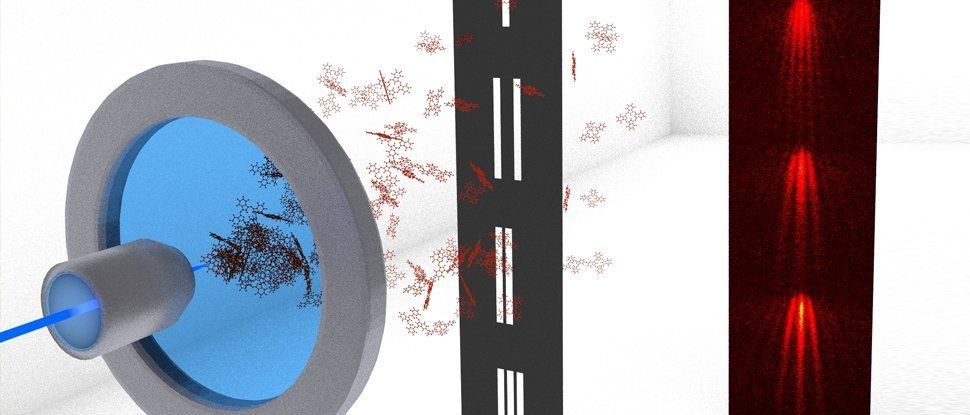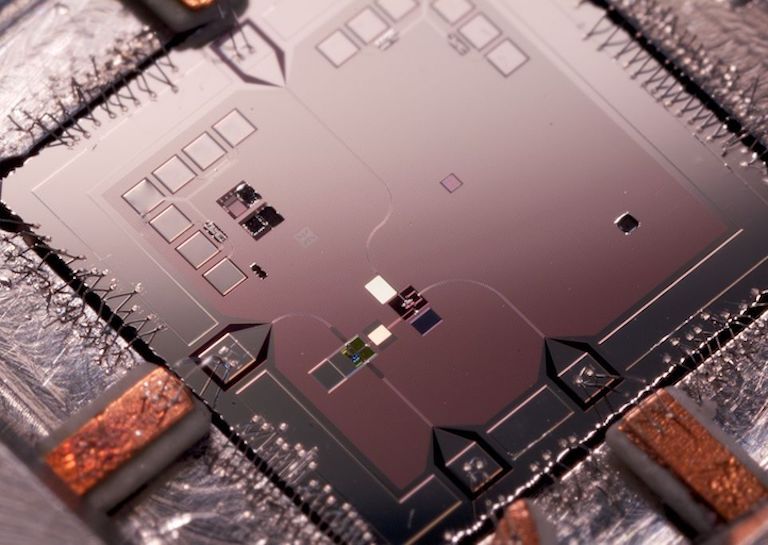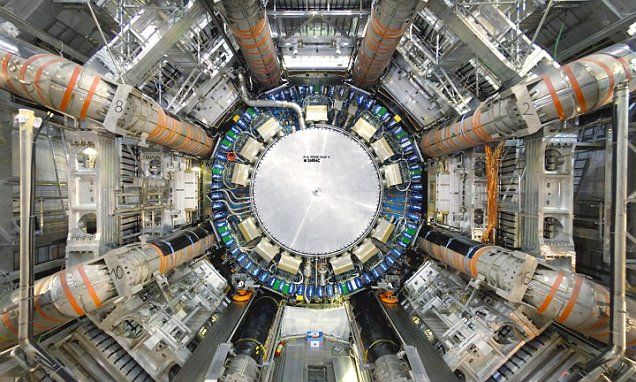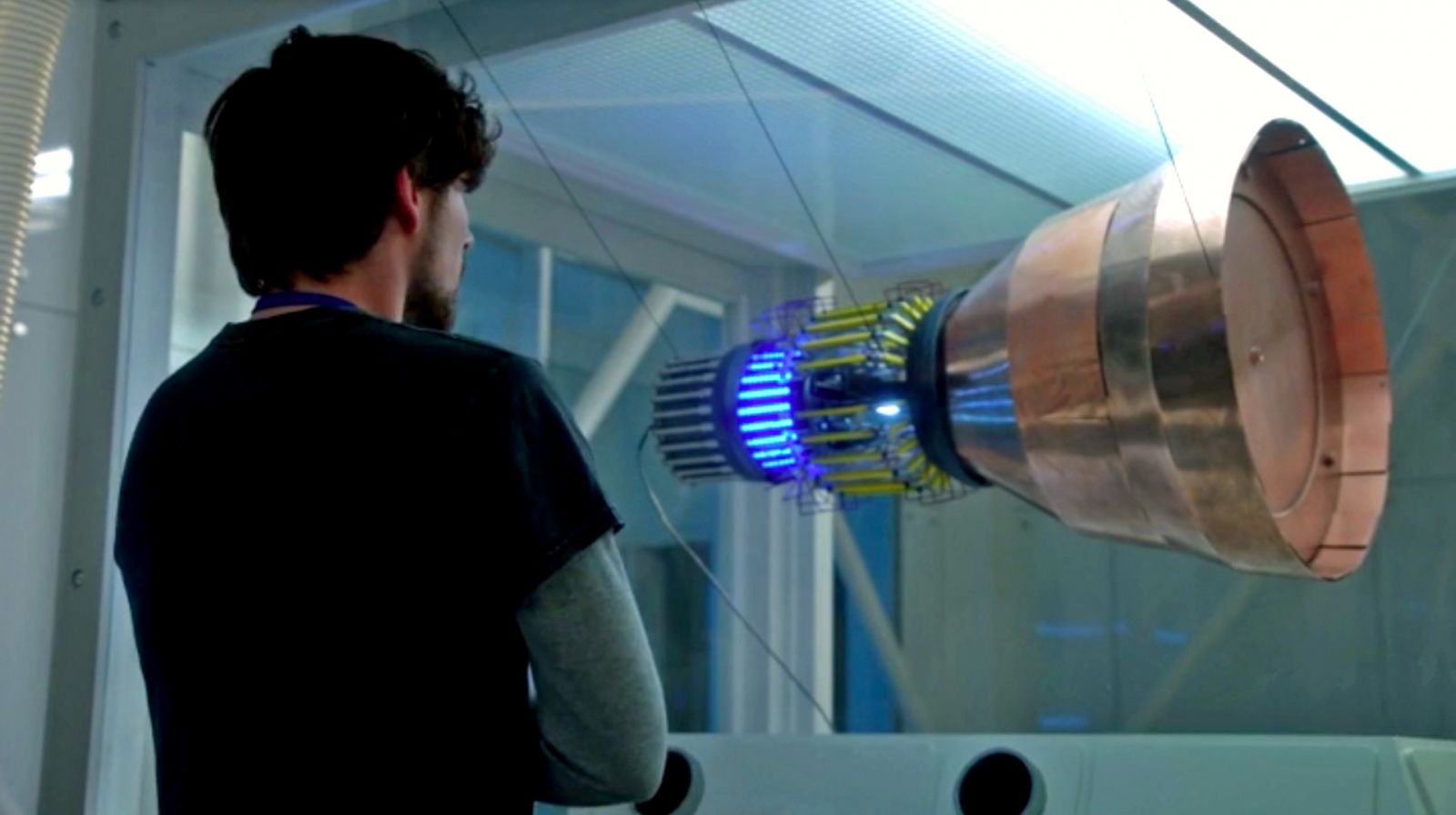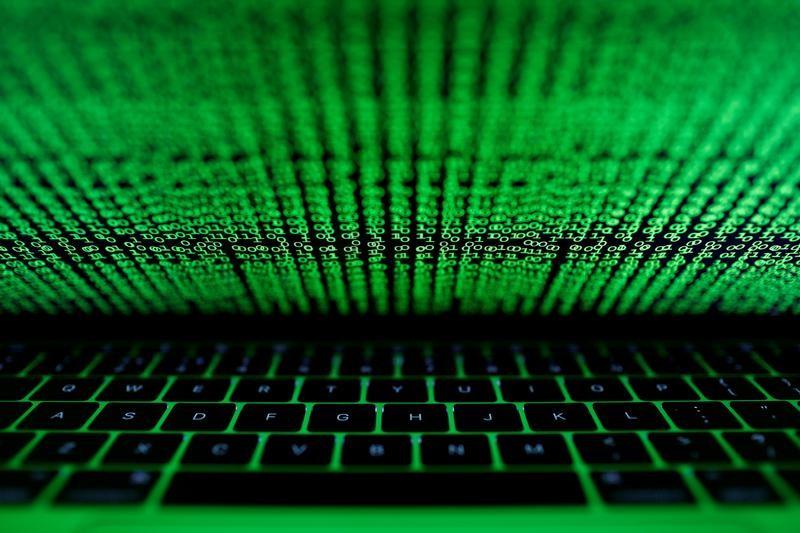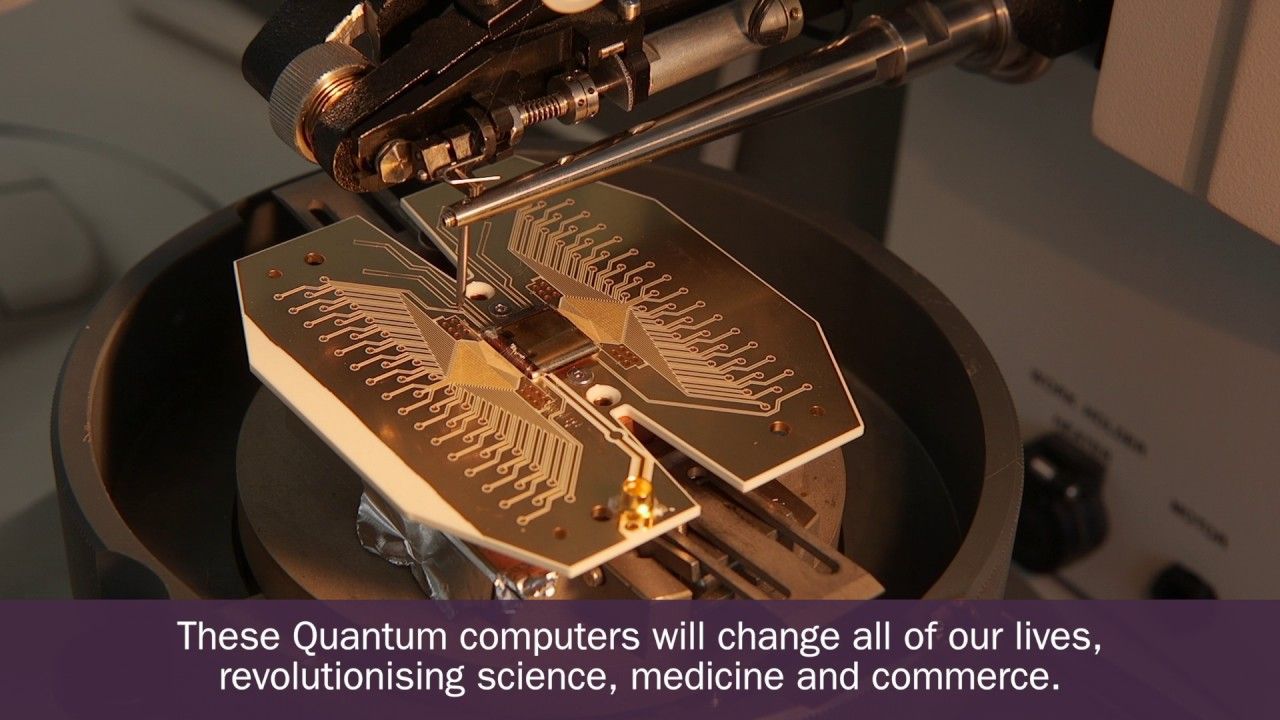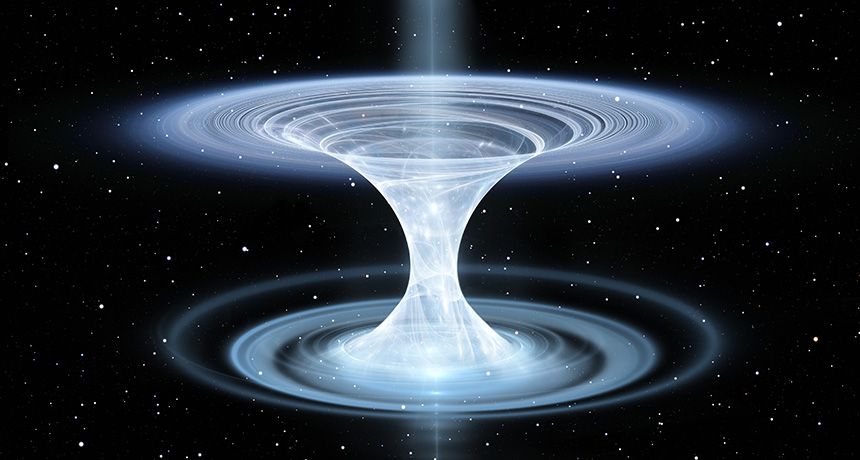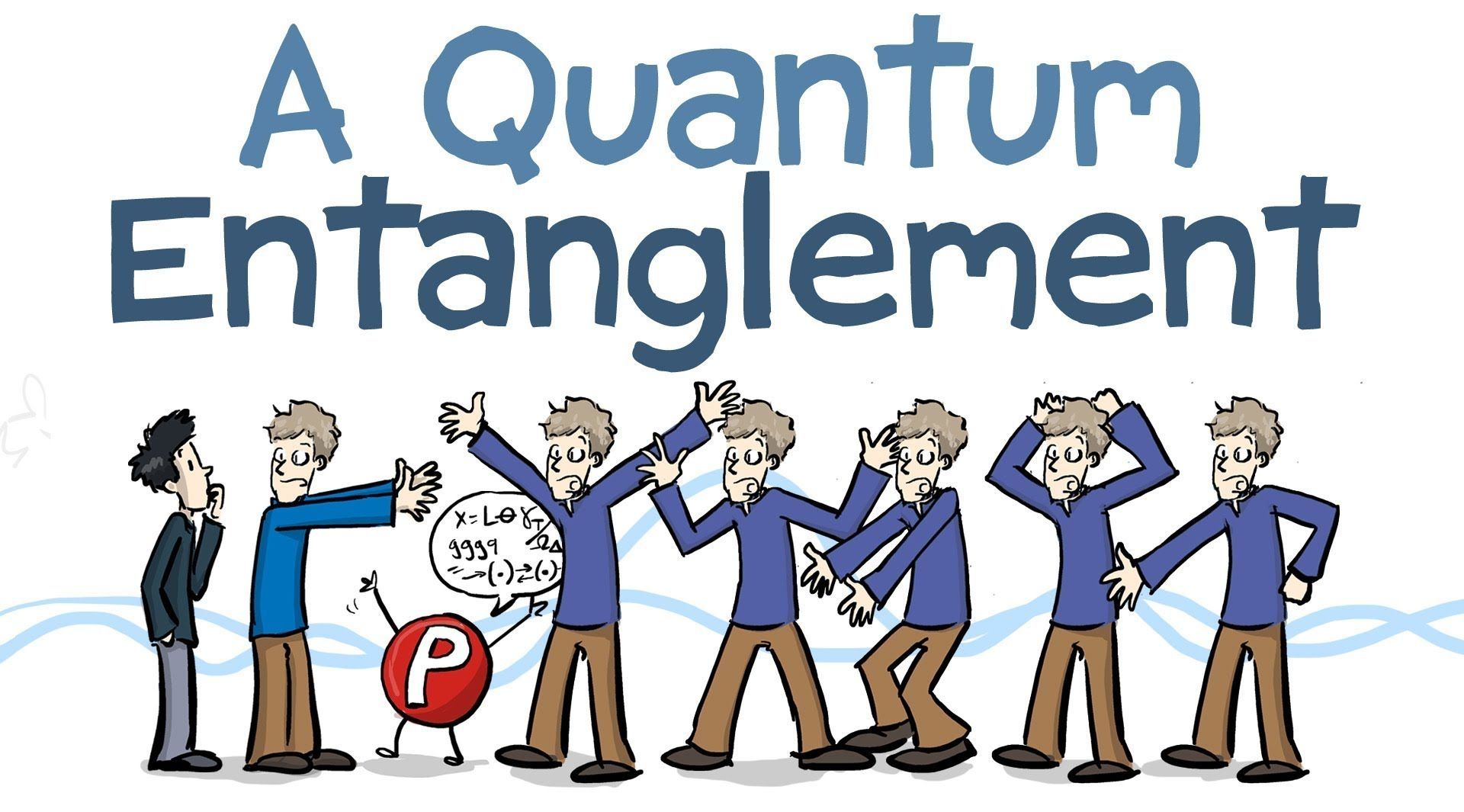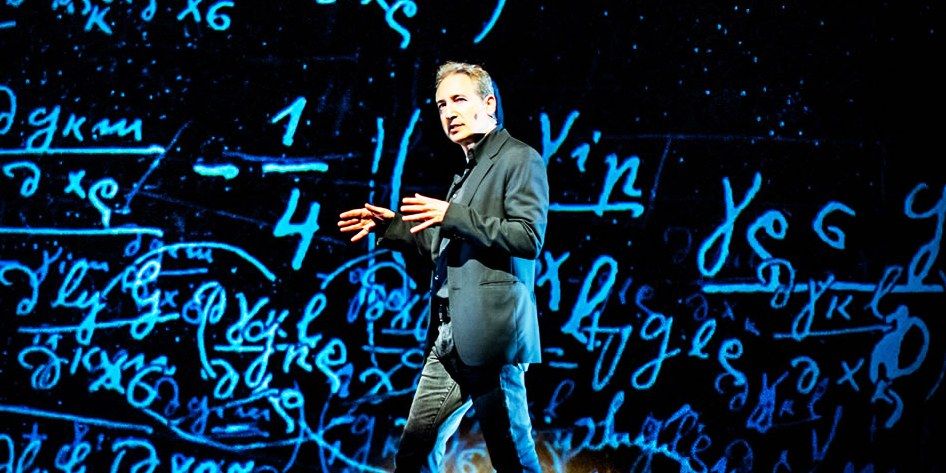
The robot is building a tesseract. He motions at a glowing cube floating before him, and an identical cube emerges. He drags it to the left, but the two cubes stay connected, strung together by glowing lines radiating from their corners. The robot lowers its hands, and the cubes coalesce into a single shape—with 24 square faces, 16 vertices, and eight connected cubes existing in four dimensions. A tesseract.
This isn’t a video game. It’s a classroom. And the robot is Brian Greene, a physicist at Columbia University and bestselling author of several popular science books. His robot avatar teaches a semicircle of student robots, each wearing a shoulder badge of their home country’s flag. The classroom is outer space: Greene and the arc of student-robots orbit Earth. After he shows the students the tesseract, Greene directs his class to try making four, five, even six dimension objects. This is a virtual reality course on string theory; the lesson happens to be about objects with more than three dimensions.
In real life, Greene is wearing a dark blue shirt, black jeans, and boots, and his normal, non-hovering chair is sitting in a concrete-floored VR business called Step Into the Light planted firmly on Earth’s surface—Manhattan’s Lower East Side. An HTC Vive headset covers his face, and he gestures effusively—he’s a New York native—with the controllers.
Continue reading “String Theory’s Weirdest Ideas Finally Make Sense—Thanks to VR” »

